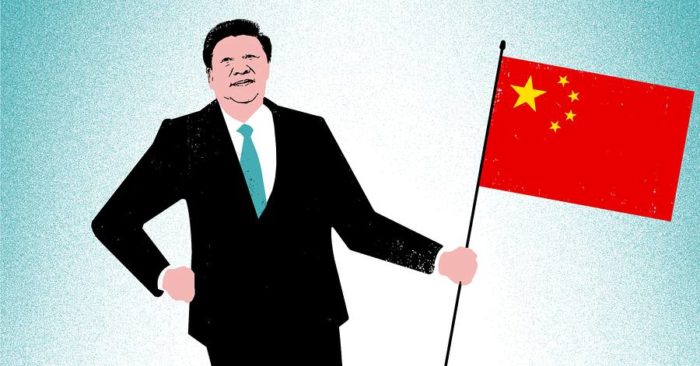
BROWSER UPDATE To gain access to the full experience, please upgrade your browser:
Note: If you are running Internet Explorer 10 and above, make sure it is not in compatibility mode
https://www.wsj.com/articles/has-xi-jinping-stirred-a-backlash-11565968019
Has Mr. Xi made a mistake in asserting greater world-power status for China to match its economic might? Should the country have waited another decade or two, biding its time until China’s leading edge in technology and global trade became unassailable?
In a 2017 speech to the Communist Party Congress, Mr. Xi celebrated the fact that China “has stood up, grown rich and is becoming strong.” Beijing’s ultimate goal, he added, was to become a “global leader in terms of composite national strength and international influence.”
Still, the ferocity of the global reaction to China’s new swagger has taken many Chinese officials by surprise. “It’s now politically correct to bash China,” added Mr. Wang, who also serves as president of the Center for China and Globalization in Beijing. “China didn’t say it will conquer the world. It said it is building a community of shared future for mankind. But somehow, the message didn’t get across, and there is quite a big backlash.”
In Europe, China is now seen less as a benign power pursuing stability and prosperity than as “a systemic rival promoting alternative models of governance,” as the European Union declared in March.
Meanwhile, in the developing world, controversies have grown around Mr. Xi’s ambitious Belt and Road initiative, which is meant to seed billions of dollars in Chinese investment across the globe. From Malaysia to the Maldives, politicians have won office partly by challenging the corruption and debt surrounding many Chinese projects.
The great question raised by China’s new posture is whether it can navigate the shift in its relative power without spiraling into an outright confrontation with the U.S. Such a clash could handicap the world’s two largest economies—and, in the worst-case scenario now being openly discussed by policy makers on both sides of the Pacific, even throw Asia into a major war.
When Deng took over in 1978, China was emerging from the horrors of famine and the Cultural Revolution; the country had been isolated for decades. Jettisoning much of communist dogma, he urged the Chinese to get rich and worked to integrate the country into the global market. The economy soared, and many Western leaders assumed that, over time, China’s political system would open up too.
The 2008 financial crisis, which Beijing helped to alleviate by pumping liquidity into Western markets, shook such beliefs. The crisis convinced many in China’s establishment that the Western system was about to collapse—and that the time had come for Beijing to emerge from the shadows and propose an alternative.
In parallel with a popular crackdown on widespread corruption, Mr. Xi has reasserted Communist Party control over China’s society and economy, including private enterprises. He has eliminated term limits for his own rule, accelerated China’s military buildup and authorized the draconian repression of Muslims in the western Xinjiang region.
Criticism of Mr. Xi’s harder line is rare in China’s tightly controlled press and censored social media. But many influential liberal voices in the country’s foreign-policy establishment, as well as among its business elites, continue to warn of the perils ahead—and to call for a course correction.
As trade tensions with Washington intensified this summer, many editorials in Beijing’s government publications zeroed in on so-called “capitulators” who argue for a softer stance toward the U.S. and a less assertive foreign policy, accusing them of lacking faith in China’s abilities and of betraying the country’s national interests. “Yes, the elites are being cautious—but if you talk to people on the street, that’s very different,” a senior Chinese military official said. “They want more.”
But China’s power has limits. The Chinese military, while rapidly modernizing, lacks combat experience. The new, more muscular posture adopted by China’s diplomatic service has led to several blunders; recent attempts by Chinese embassies from Moscow to Rome to bully local media backfired badly. And despite historic strides in development—including new airports, railroads and highways that often put America’s decaying infrastructure to shame—China remains a middle-income country, with a per capita GDP roughly the same as Mexico’s.
Many countries are suspicious of China’s intentions because Beijing has been deliberately vague about how it sees its new role in the world. China gives assurances about “win-win” cooperation and its commitment to avoiding hegemony even as it increasingly tries to intimidate smaller countries.
Throughout history, China’s relationship with the world—when the country wasn’t enduring foreign invasions itself—was often that of a central empire surrounded by friendly vassal states, which lived by their own rules as long as they paid tribute and complied with China’s aims. In some ways, this seems to be Beijing’s aspiration today, at least when it comes to China’s own neighborhood.
Write to Yaroslav Trofimov at [email protected]
